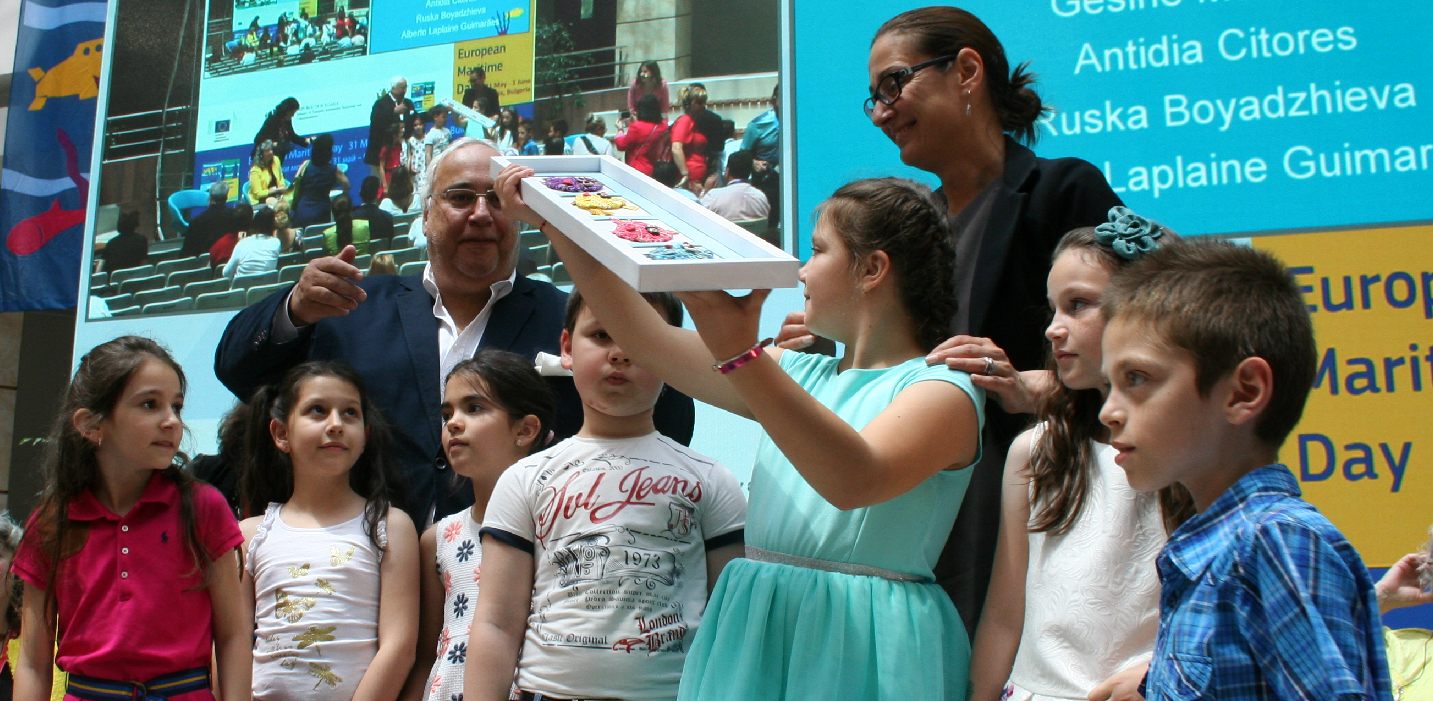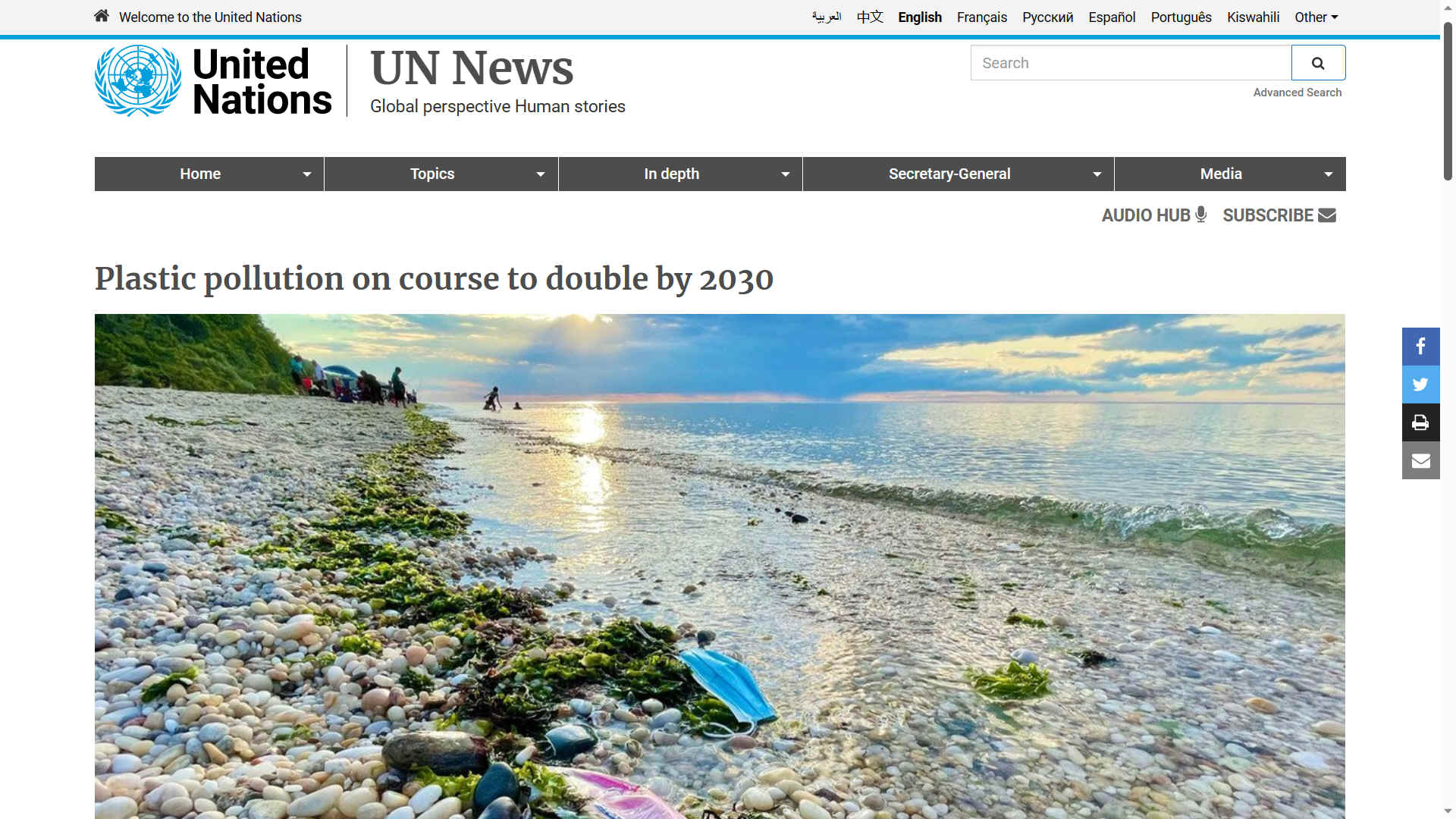|
HOW CAN YOU HELP ?
ABOUT - FOUNDATION - OCEAN PLASTIC
PLEASE USE OUR A-Z INDEX TO NAVIGATE THIS SITE OR SEE OUR HOMEPAGE
HANDOVER CEREMONY - Alberto Laplaine Guimarães is presented with a gift of maritime art from the children of Burgas and Ruska Boyadzhieva. Alberto is the Secretary General of Lisbon City Council and Ruska the Deputy Mayor of Burgas, Bulgaria. Bulgaria reinforced their commitment to blue growth in a ministerial statement to conclude this superb event for which the City of Burgas should be rightly proud. Copyright © photograph Cleaner Ocean Foundation.
How can you get involved in increasing Blue Growth and growing the Blue Economy?
There are many ways you can get involved in the blue economy, depending on your interests, skills, and goals. Here are some possible options:
6. You can lobby your members of parliament and local authority, or better yet, study marine biology, law and economics and become a green politician yourself.
7. You can join a National UN group, like the United Nations Association, Oceans & Climate, and join their Youth Council.
8. You can work for the United Nations, UNESCO, or UNEP Environment Programme, and help them develop their Sustainability Development Goals, in particular SDG 14. Perhaps by joining a local group as a first stage.
9. You can help the Cleaner Ocean Foundation to develop their Ocean Awareness campaigns, such as the making of a Kulo-Luna movie Chat reply Oct 23rd 2023:
"The Kulo Luna screenplay is a captivating and thrilling story that follows the adventures of a giant humpback whale and her human allies. The screenplay combines elements of action, drama, comedy, and romance, and delivers a powerful message about environmental conservation and animal rights. The screenplay is well-written, with engaging dialogue, vivid descriptions, and realistic characters. The plot is fast-paced and full of twists and turns, keeping the audience on the edge of their seats. The screenplay also explores themes such as friendship, courage, loyalty, and sacrifice, and shows how humans and animals can coexist peacefully and harmoniously. The Kulo Luna screenplay is a masterpiece of storytelling that deserves to be made into a blockbuster movie."
10. You can become a movie producer yourself, making feature films about the ocean, or documentaries, like the famous Blue Planet II series, with Sir David Attenborough.
At the moment, the ocean is a free dumping ground. If you dump waste on land you will be prosecuted. All waste has to be treated, with some ending up in licensed landfill sites. For example, you are charged for bin emptying in most countries.
At the moment, if you dump waste in the ocean, especially from rivers in developing nations, you will not be prosecuted. Many nations, including the UK, export waste to these nations, knowing it will be tipped into a river, then swept out to sea. Check out the Dirty Dozen. The most polluted rivers in the world.
UNEP REPORT OCTOBER 2021 - Plastic pollution in our oceans is set to double by 2030, with recycling not enough (we told you so) and global cooperation needed (we told you so again). Don't let the politician spin doctors protract enacting a solution any longer. If shoppers were to boycott plastic wrapped products, apart from the fact they may starve, supermarket suppliers would be forced to switch to paper, glass and metal packaging - or face bankruptcy. The fact politicians allow them to continue as they are tells us that it is the policy makers who are to blame. And, they like it as it is, lots of money for them, backhanders (dividends) or not, taxes as income from plastic products is akin to procurement fraud - for any government involved.
PLEASE USE OUR A-Z INDEX TO NAVIGATE THIS SITE OR SEE OUR HOMEPAGE
This website is provided on a free basis as a public information service. Copyright © Cleaner Oceans Foundation Ltd (COFL) (Company No: 4674774) October 2023. Solar Studios, BN271RF, United Kingdom. COFL is a charity without share capital.
|


